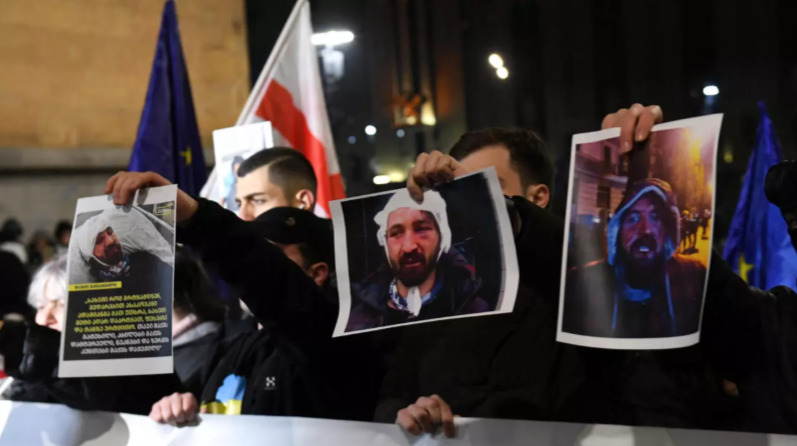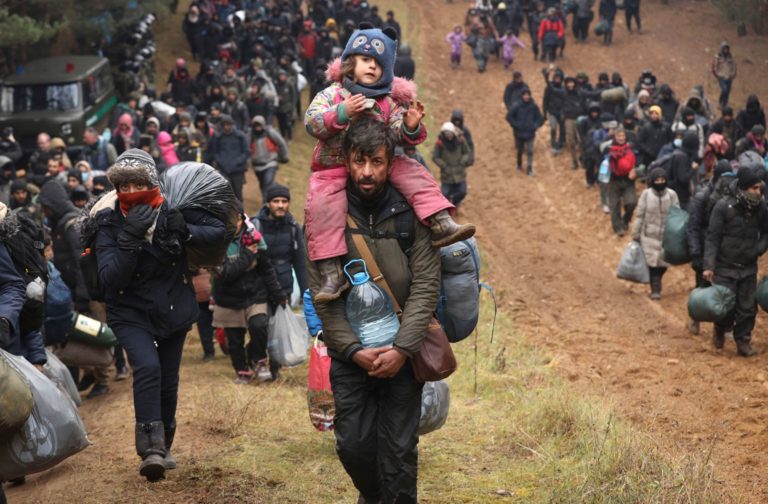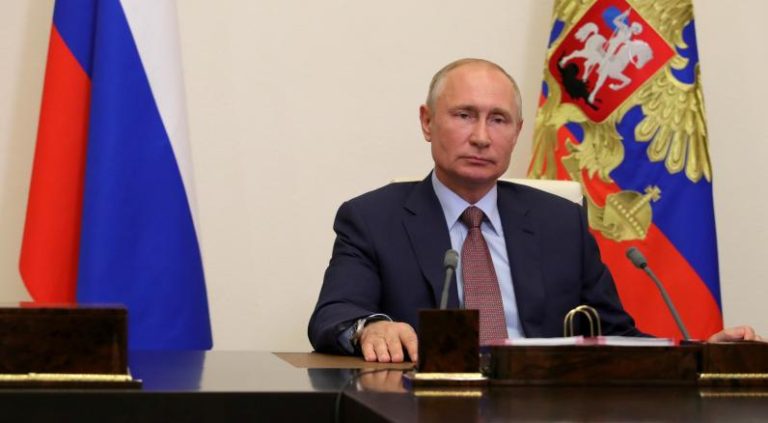
The ongoing unrest in Georgia, characterized by daily pro-E.U. and anti-government demonstrations, has persisted for over 100 days. This turmoil was ignited after the Georgian government, led by the Georgian Dream party, announced on Nov. 28, 2024 the suspension of E.U. accession negotiations until 2028. Yet, despite the continuous pro-E.U. protests since November, the European Union has not actively participated or conveyed a strong message through actions, relying instead on mere verbal support.
Understanding the current tumultuous environment in Georgia first requires an understanding of the complex and tumultuous relationship between Georgia and its northern neighbor, Russia. For years, Russia has sought to assert its dominance over Georgia, employing a dual strategy of military might and a subtle encroachment on Georgian economic and political independence in an attempt to ensure that the post-Soviet state remains firmly within the Kremlin’s sphere of influence.
The Kremlin executed its first significant maneuver by invading the nation in 2008, igniting a brief but turbulent war between the two states. The primary objectives of Russia’s aggression were twofold: to extend its sphere of influence and to thwart Georgia’s aspirations for integration into the European Union and NATO, all while seeking to destabilize the nation in a manner reminiscent of its actions in Ukraine.
Many analysts regard the conflict in Georgia as a harbinger of the broader hostilities that would later engulf Ukraine. The war culminated in Russia’s unilateral declaration of independence for the separatist regions of Abkhazia and South Ossetia in Georgia, a decision that Georgia and the wider international community condemn as tantamount to an occupation. Yet this was merely the prologue to Russia’s ongoing aggression. In the aftermath of the 2008 conflict, a systematic campaign of borderization was unleashed — an insidious encroachment upon Georgian lands marked by the installation of border posts, fences, and barbed wire along the administrative boundary lines that separate Abkhazia and South Ossetia from the rest of Georgia.
Due to the war and the onset of the occupation of Georgian territories, all diplomatic relations between Georgia and Russia were severed in 2008 and remain unrestored. Despite this, Russian influence in the country has only increased. The reason? The Georgian Dream — a political party that assumed power in 2012 and has led the country since.
Georgian Dream has implemented a normalization strategy aimed at advancing Georgia’s aspirations for E.U. and NATO integration while simultaneously strengthening relations with Russia through economic, political, and social ties. The strategy, however, has only increased the Kremlin’s influence in the country. Meanwhile, Georgia has isolated itself from its Western allies due to the government’s increasingly anti-democratic and pro-authoritarian stance.
The Georgian Dream government has ignited discontent among the Georgian population, as evidenced by the ongoing mass protests. A significant 77 percent of Georgians view Russia as the greatest political threat to their nation, while 81 percent support the idea of joining the European Union. Large-scale protests began back in 2019 when Sergei Gavrilov, a member of the Russian Communist Party, occupied the speaker’s chair in the Georgian parliament, which ultimately forced Gavrilov to flee the country. Still, the Georgian government has failed to heed the message of the protests and persisted with its authoritarian, pro-Russian actions and rhetoric. As a result, these protests have escalated.
Georgian authorities have consistently resorted to force to stifle public opposition. The current wave of peaceful protests has been hit with a barrage of oppressive measures, including tear gas, rubber bullets, and water cannons. Upwards of 400 individuals were arrested in the mere first ten days of the movement, a figure that continues to grow. Alarmingly, former president Mikheil Saakashvili’s prison term has even been extended to twelve years in the authoritarian crackdown.
As a Georgian, I find myself profoundly impacted by these circumstances. I am involved in the organizations Public Initiatives Association and Georgian Youth for European Future, both of which have become ensnared in the web of political repression. Our commitment to advocating for the rights of Georgian political prisoners and our active participation in the recent protests have drawn the ire of those in power. My colleagues and friends now find themselves under the constant threat of violence, harassment, and relentless pressure from government agents, all of which serve to disrupt our mission and perpetuate the pervasive climate of political repression that has drawn the condemnation of international bodies like Amnesty International.
The responsibility for aiding the Georgian populace in their struggle against the pro-Russian Georgian Dream Party rests squarely upon the shoulders of the European Union. The fight of the Georgian people is an important extension of Europe’s overarching resistance to the encroachment of Russian imperialism, and it is imperative that decisive measures be enacted to halt this widespread oppression in Georgia and to support its citizens.
Yet, the E.U. has failed to impose significant sanctions on the Georgian Dream Party for its oppressive actions, such as the dismantling of democratic principles in Georgia. Should the Union continue neglecting to do so, it risks conveying a perilous message to other candidate nations that democratic regression can occur without accountability. By extending their support to Georgians, European nations would not only assist countries aspiring to integrate into the European alliance — such as Georgia, Ukraine, and Moldova — but also fortify the Union itself, defending against Russian influence.
The E.U.’s approach to addressing the crisis also must encompass the imposition of sanctions on governmental figures, particularly those culpable for transgressions against civil society and the political opposition. In this light, it is imperative to extend asset freezes to the leaders of the Georgian Dream Party, including the oligarch Bidzina Ivanishvili. At the same time, the E.U. should provide support to both regular protesters and NGOs actively participating in the protests such as the Public Initiatives Association and Georgian Youth for European Future.
Finally, E.U. leaders should visit Georgia, as their physical presence on the ground would clearly convey to the Georgian people that the E.U. stands in solidarity with their aspirations and bolster the morale of the protesters advocating for integration into the broader European community. Simultaneously, it would deliver a message to the Georgian government that E.U. leaders censure their actions. The fate of Georgia hangs in the balance, and it is crucial that the E.U. aids Georgians in their quest for liberation from Russian dominance and their desire to join the ranks of a free and democratic world.
The Zeitgeist aims to publish ideas worth discussing. The views presented are solely those of the writer and do not necessarily reflect the views of the editorial board.



